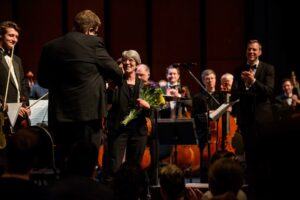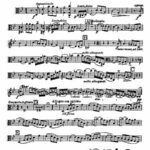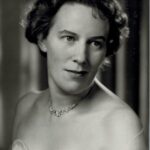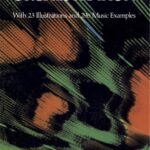Randi Nelson was a member of the Saskatoon Symphony Orchestra and our principal flute for 47 years. More than just a member of the orchestra, she was a pillar of the music community in Saskatoon and across the country. When she retired we had hoped to see her smiling face in our audience for years to come. Unfortunately, life had other plans and we lost Randi to cancer in 2020.
 When Randi retired in 2016 CEO Mark Turner wrote:
When Randi retired in 2016 CEO Mark Turner wrote:
“If we had to pick one word to describe Randi Nelson it would be “classy”. She is kind, supportive, meticulous and extremely hard-working. Her lifelong dedication to this orchestra is an inspiration. She will always strive for the best in any situation. With a gift for organization, Randi is always taking the initiative to help coordinate her fellow musicians.”
Randi joined the SSO in the fall of 1969 and in the later part of her career she was a fountain of knowledge about the SSO. Her many memories and stories were great reminders of how far the SSO has come. She also shared her wisdom and was considered a great mentor in the SSO and the greater musical community.

Being a part of the orchestra wasn’t the only connection Randi had to the SSO. Her father, Dwayne Nelson, was the Music Director from 1971–1976. It’s safe to say her passion for music began at home. In an interview when asked about the role of music in her early life she said
“It was a major part of my family’s life. I remember all of my parents’ students sitting around in our living room listening to recordings late into the night. I would lay awake and listen.”
In the same interview, Randi lists her biggest influences in classical music as her parents and noted she was still working on a solution for nerves before a performance.
In her role as a principal, she was part of the SSO’s core. This group of musicians performs in all of the main series concerts and all the smaller gigs including school shows, touring shows, Time for Toddlers, and visits to assisted living facilities.
We love the story principal violist James Legge shares about Randi’s school show introduction about Beethoven’s 5th and those “first 5 notes”.
“Randi has taught me that it’s not all about the final concert. Rehearsals can be just as inspiring and fun. Since the beginning of my time here, she has set the example of what it means to be a good colleague, dedicated teacher, wonderful performer and caring friend.”
– Stephanie Unverricht, principal bassoon (Taken from the program notes at Randi’s retirement)
Her dedication, work ethic, and joy in making music were infectious. As noted by Margaret Wilson, principal clarinet in this lovely snippet.
“Always meticulously prepared, Randi has been such a good leader in our orchestra. Known for her ‘smoke and whisky” sound, her precise musical leadership will be sorely missed.”
– Mark Turner (Taken from the program notes at Randi’s retirement)
Erin Brophey, principal oboe, speaks of how Randi was really the core’s mom. Randi’s leadership and mentorship showed themselves in countless ways – most of all in her actions as remembered by so many.
Due to Covid-19, there was no opportunity to have a celebration of Randi’s life. Randi’s husband Terry (cellist & longtime SSO collaborator), and her children, opened up her beloved garden for friends and family to give people a chance to grieve together safely. In that garden, SSO CEO Mark Turner announced that the SSO was going to commission a piece in honour of Randi’s memory. Terry shared a beautiful memory of seeing his wife “up to her waist in lupins” which was passed on to composer Christos Hatzis and led to the creation of the work we premiere on September 24th during our season opening concert Orchestration.
Terry graciously spoke with CBC’s Shauna Powers about Randi and the new piece. You can listen to the chat here.
When we premiere “Up to her Waist in Lupins” our current principal flute, Allison Miller, is the featured soloist. We had a chance to ask her about how she felt giving the world premiere of this work by Christos Hatzis in honour of Randi.
Before her retirement, we asked Randi what her hope was for the future of classical music in Saskatoon. She answered by saying she hoped
“that it continues to be relevant and understood as an important measure of a societal worth.”
We can’t think of a more worthy cause than a new piece of music commemorating the incredible Randi Nelson.
As Erin Brophey said in a recent CBC interview,
” it is absolutely fitting that there’s a new, incredibly gorgeous, piece that is going to be added to the flute canon. That there will be people that will continue to perform this piece and have to research who Randi was. It keeps her legacy going.”
You can be a part of continuing Randi’s legacy by donating towards the cost of the commission.





